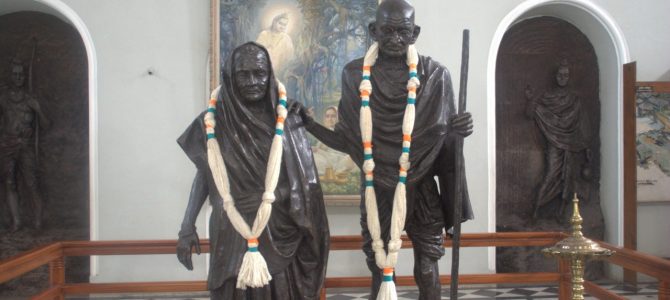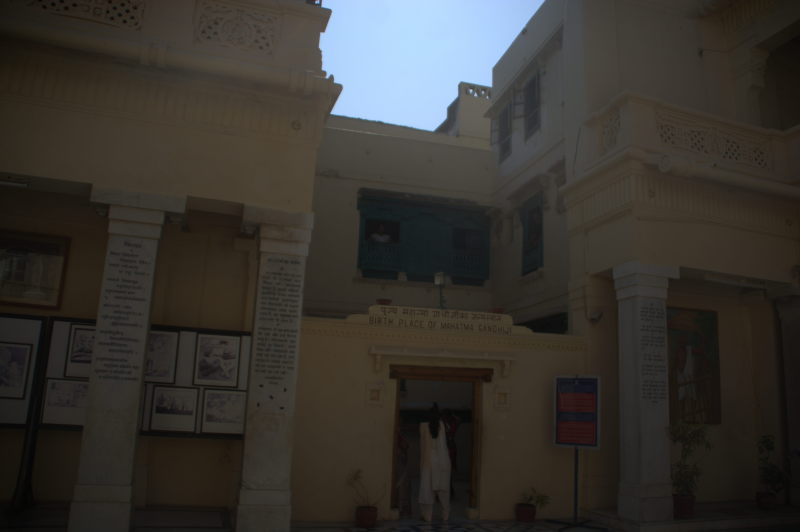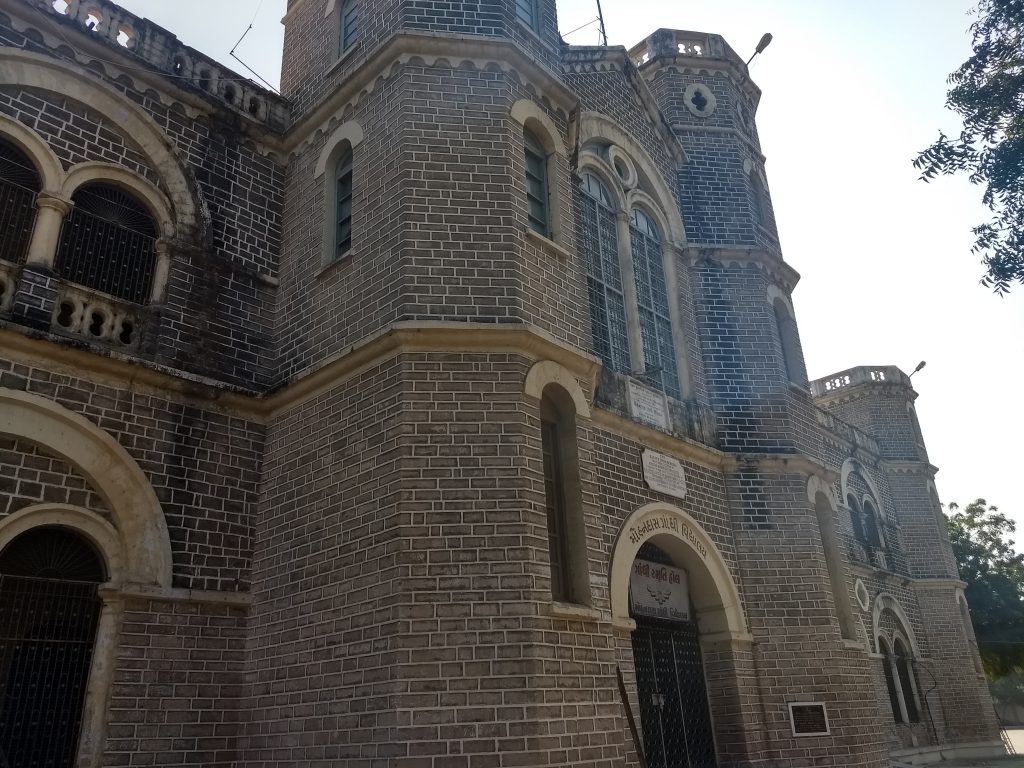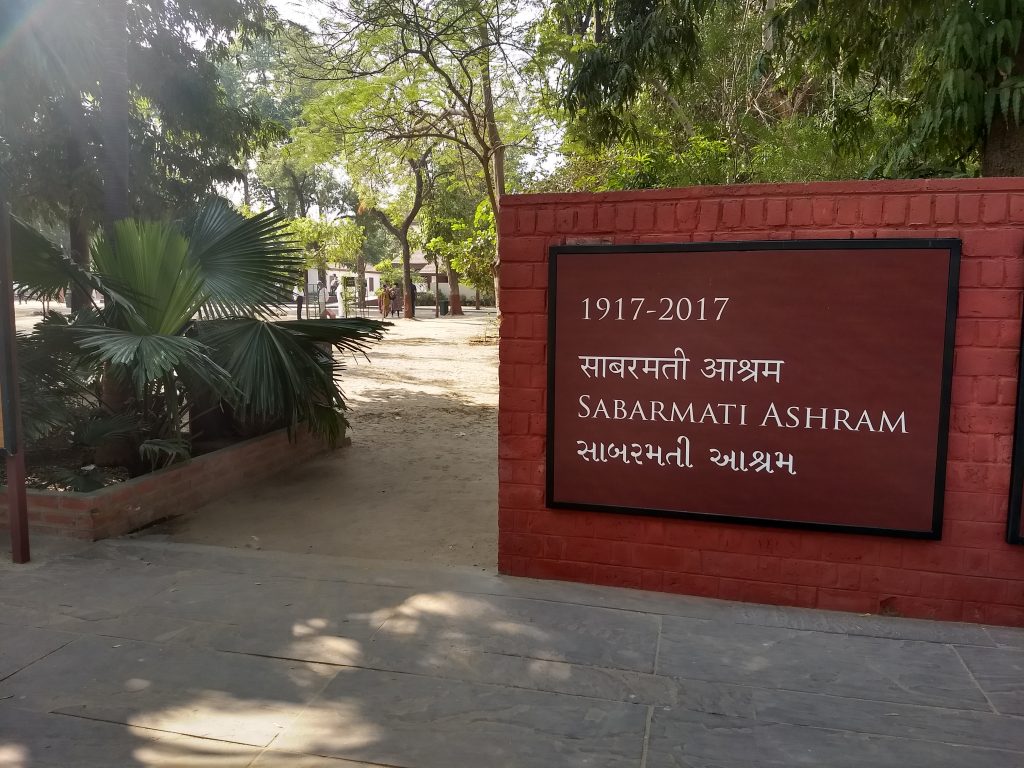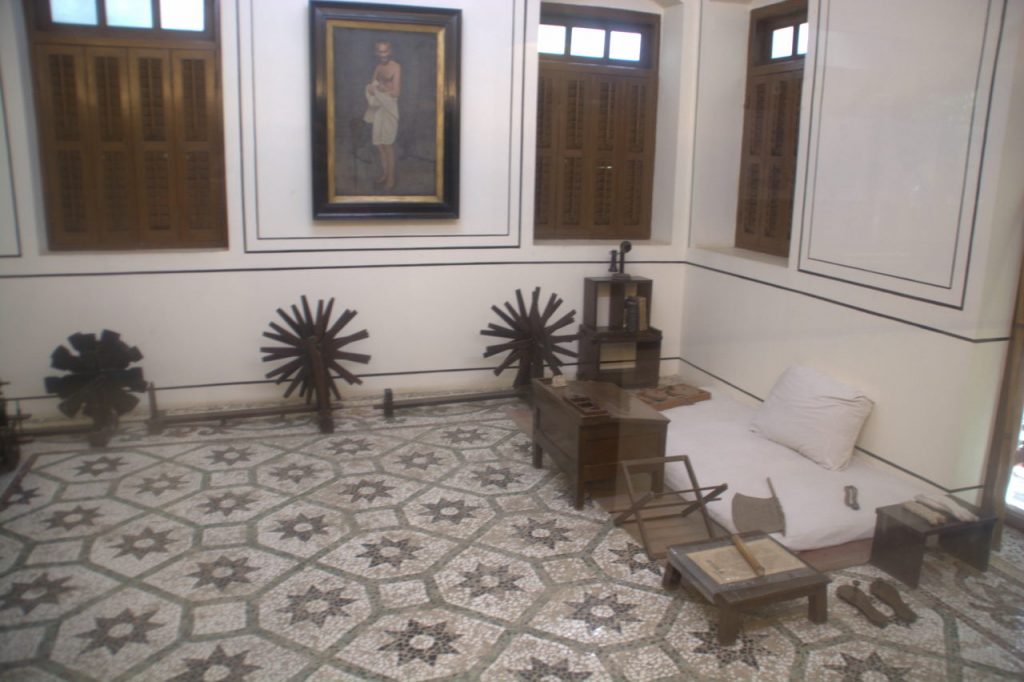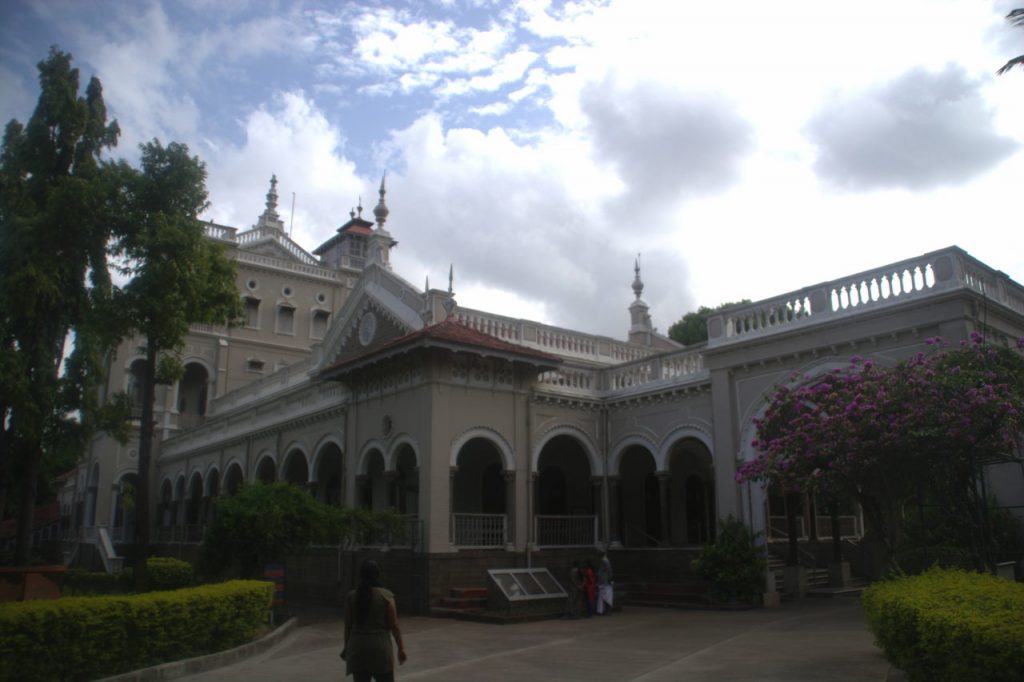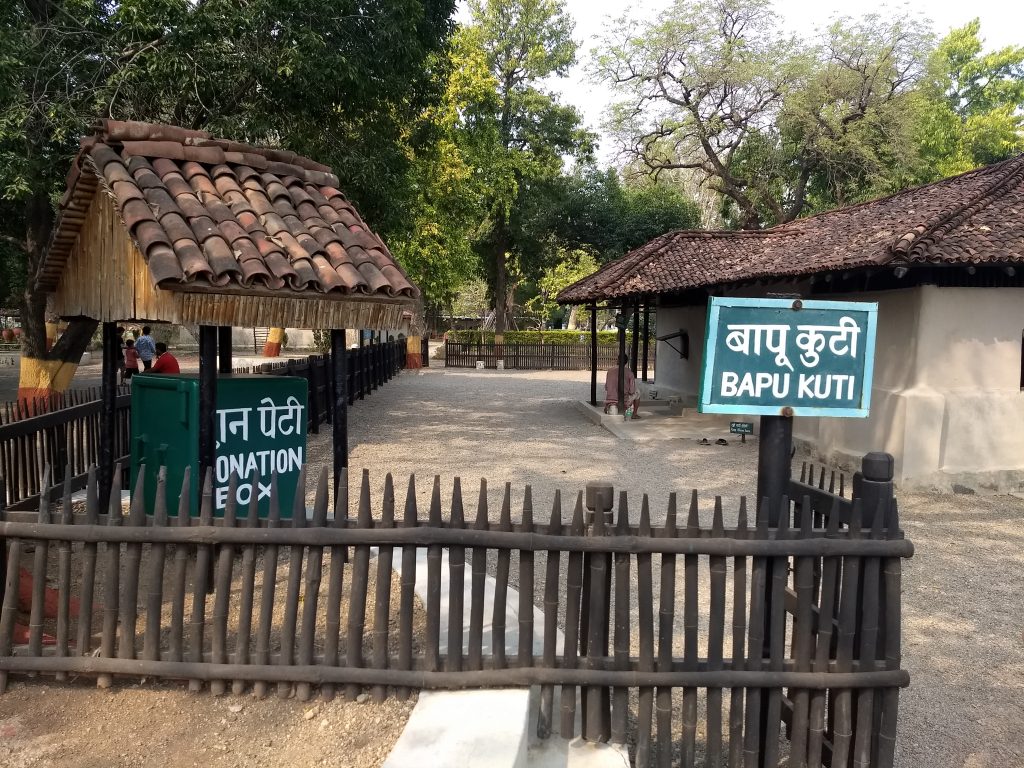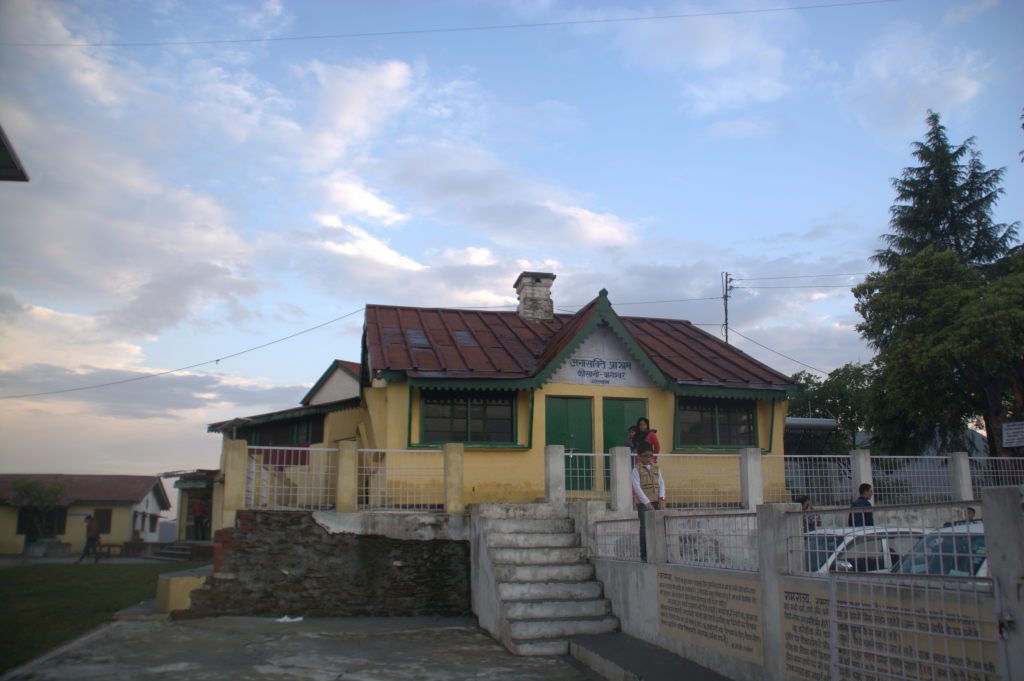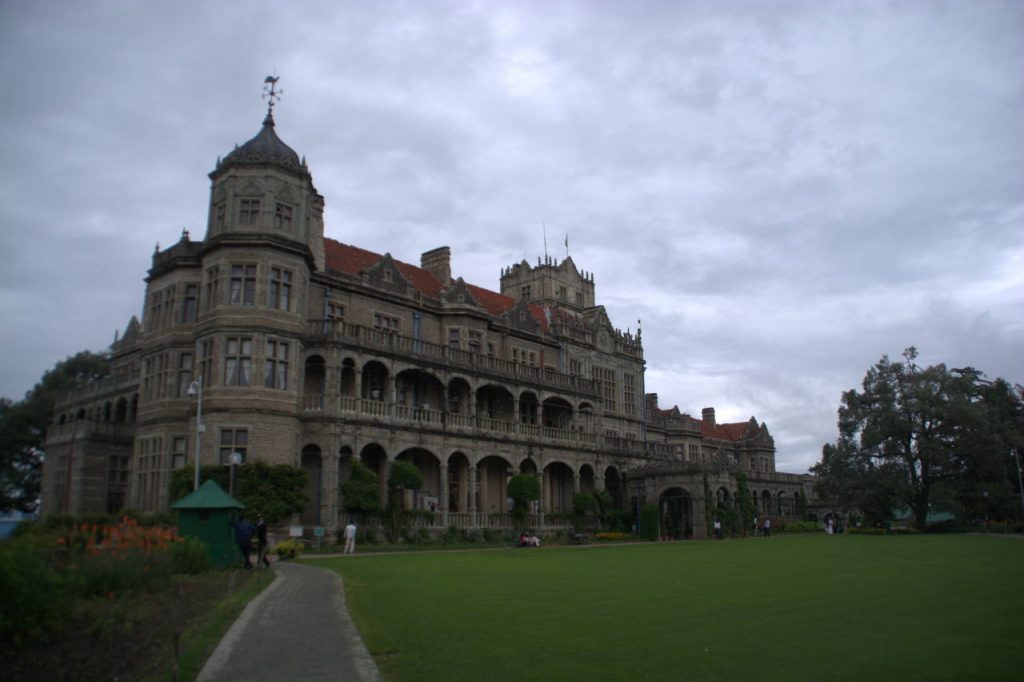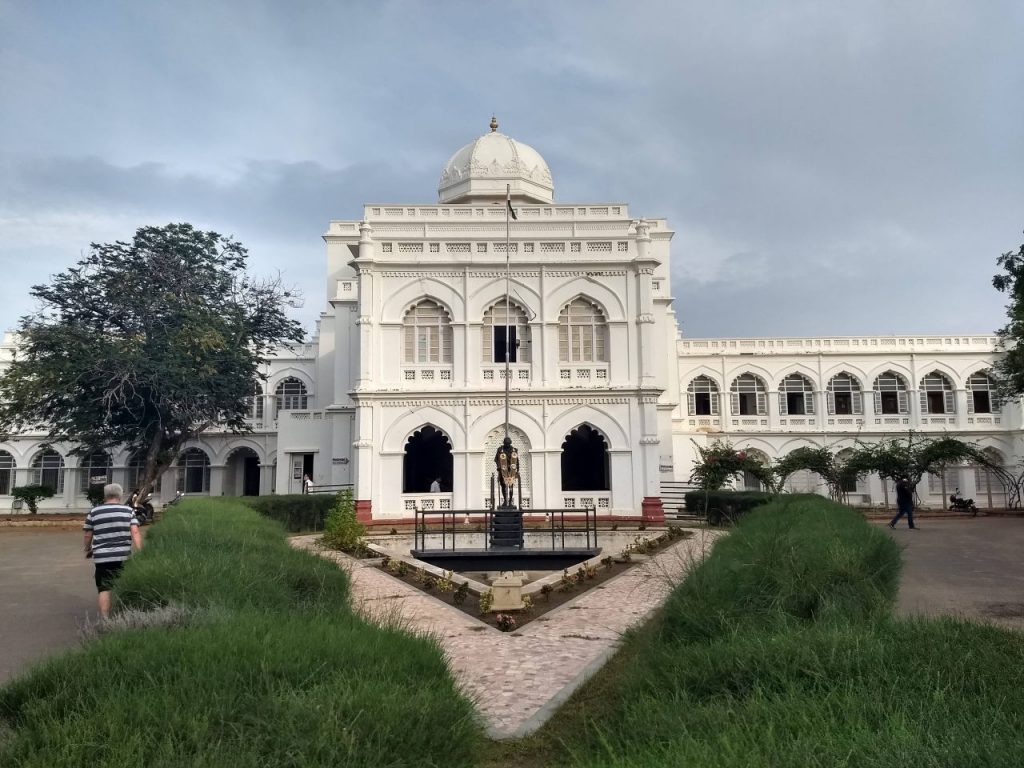In trip India 360, we didn’t plan to travel by any theme. We simply covered as much of India as we could in one year, seeing each region during its best weather. After completing the trip, we could identify patterns among some of the places we visited. One such pattern is a Mahatma Gandhi trail. On review, we found that we covered a lot of cities important to the life of Gandhiji. A thematic tour around those cities, that we can call the Mahatma Gandhi trail, forms an interesting trip.
Porbandar, Gujarat
Porbandar is a coastal city in western Gujarat. This is the city where Gandhiji was born in 1869. His birth home is now maintained as a museum and a place of worship known as Kirti Mandir.
Rajkot, Gujarat
The principal city of Saurashtra region, Rajkot, is where Gandhiji went to school. The modern-day Alfred High School, renovated by the Nawab of Junagadh after independence, stands at the same place where Rajkot English High School once stood. This is where a young Mohandas Gandhi attended school in his childhood.
Ahmedabad, Gujarat
With Gandhiji’s plea for creating and using Swadeshi goods, came his idea of building a place where people from all over India would convene, learn basic skills like weaving and thus be independent of British goods. His flagship project for promoting self-sufficiency and for people to work together stands today on the western bank of Sabarmati river at Ahmedabad. Gandhiji decided to start with his own native state to mentor the Gujarati speaking population. He tried his idealogy locally before he took his movement pan-India.
Dandi, Gujarat
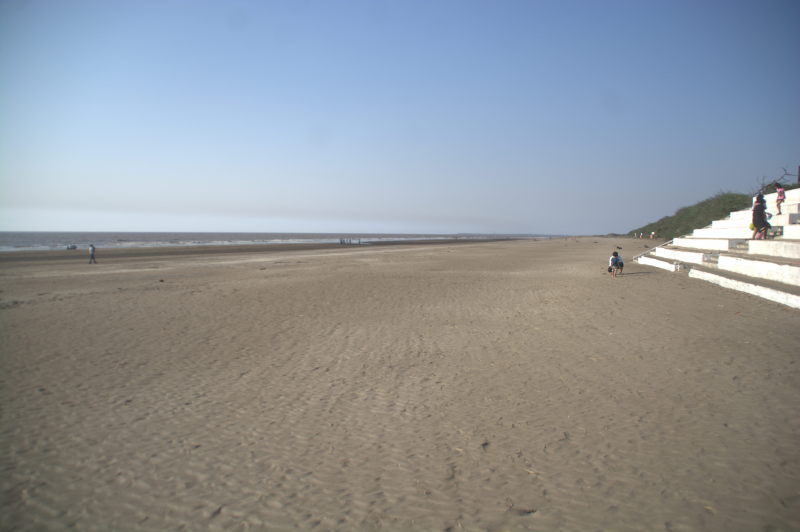
Gandhiji ended his Salt March at the Dandi beach. But it was the beginning of a new chapter in India’s freedom struggle.
To break the back of the Indian resistance, the British introduced the salt act. They imposed a tax on the purchase of salt, making the daily commodity extremely expensive for the common Indian. In an act of defiance, Gandhiji, with thousands of followers, walked the 240 miles (384 km) from Sabarmati Ashram to Dandi beach near the city of Navsari. On reaching Dandi, Gandhiji picked up a fistful of salt from the sea and asserted to the followers that the salt was theirs and it was their right to use as much of it as they needed without having to pay tax. He encouraged Indians to mine their own salt from the sea, thus boycotting the British-sold salt. Thus Gandhiji used an item needed every day to teach a form of non-violent defiance (Satyagraha) to his fellow countrymen. The Salt Satyagraha became an iconic movement, as a model of peaceful non-cooperation and self-reliance.
Mumbai, Maharashtra
Gandhiji studied in London and later worked in Transvaal, South Africa. But it is often forgotten that he stayed and practised law in erstwhile Bombay, right after his return from South Africa. Mumbai was home to Gandhiji for 17 years. It is in Mumbai city and other places in Bombay Presidency (present-day Maharashtra) that he met with mentors Lokmanya Tilak and Gopal Krishna Gokhale. Gandhiji stayed at Mani Bhavan, a mere 100 metres from the famous Marine Drive promenade, a legendary landmark in Mumbai. The August Kranti Maidan, frequently used by Gandhiji and his mentors to address the public of Bombay, is right behind Mani Bhavan. The building is now a museum exhibiting Gandhiji’s life.
Pune, Maharashtra
Angered by the ‘Quit India‘ movement and the constant demonstrations crying, “British, Go Back“, the British resorted to imprisoning Gandhiji, his wife Kasturba and his secretary Mahadev Desai with a two-year house arrest between 1942 to 1944. The arrest was at Pune’s Aga Khan Palace. Both Kasturba and Desai got fatally ill during the arrest and were cremated inside the palace grounds. Both the deaths were huge blows to Gandhiji and he came out of the arrest, a sad and broken man. But the undeterred desire for Indian freedom made him resume the freedom struggle soon after the arrest.
Sevagram, Maharashtra
Geographically ideal Sevagram is located on the bank of the Wardha river. The village is about 10 km east of Wardha city and 70 km west of India’s geographical centre, Nagpur. It was from Sevagram that Gandhiji could travel in any direction with equal effort, thus not being confined to a corner of the country, a major drawback in Mumbai and Ahmedabad. Sadly, his last departure from Sevagram Ashram was his ill-fated trip to New Delhi in 1948.
Kausani, Uttarakhand
The majestic stance of the Himalayas and the calmness of this village in the Kumaon Mandal of Uttarakhand was so inspirational to Gandhiji that he wrote his own publication on Yoga named the Anasakti Yoga. An Ashram was established at a hill with a commanding view over both the village and the VIP peaks of the Himalayas, i.e. Nandadevi, Trishul, Chaukhamba, Nandighunti, etc.
Every evening at Anasakti Ashram is time for prayer, when Bhajans written by or practised by Gandhiji are sung, e.g. Vaishnava Janato, Raghupati Raghava, etc. In addition, you are also requested to sing a Bhajan / devotional song of your choice.
Shimla, Himachal Pradesh
At one end of the mountain, where Shimla city flourishes, is a majestic building named the Viceregal Lodge. This was the seat of the Viceroy of India, with Shimla being the summer capital of India, to escape the heat of the new national capital New Delhi. The fledgeling Indian National Congress and Gandhiji met with the British Viceroy Lord Wavell at a round table conference in 1945 to discuss the provisions for the independent rule of India by Indians. Present at this conference was also Mohammad Ali Jinnah, who asked for a seperate federation for Muslims, thus leading to the creation of Pakistan.
Today the edifice is a museum showcasing the storyline of the conference. It is also an excellent specimen of artistic woodwork, high ceilings, lighting and interior decoration.
Madurai, Tamil Nadu
On a trip to Tamil Nadu by the third-class compartment of a railway train, Gandhiji noticed locals wearing British clothes and finery. When he asked them to renounce foreign attire and adopt the khadi, the locals told him that they had no money to buy any clothes, khadi or otherwise. The British dresses they wore were second-hand and donated by the British families in whose mansions they worked as servants. Gandhiji was stung by the harsh reality of poverty. On reaching Madurai, he renounced his expensive khadi fineries. He started wrapping himself in a long, plain white khadi loin, an image of Gandhiji that has stuck with us.
New Delhi
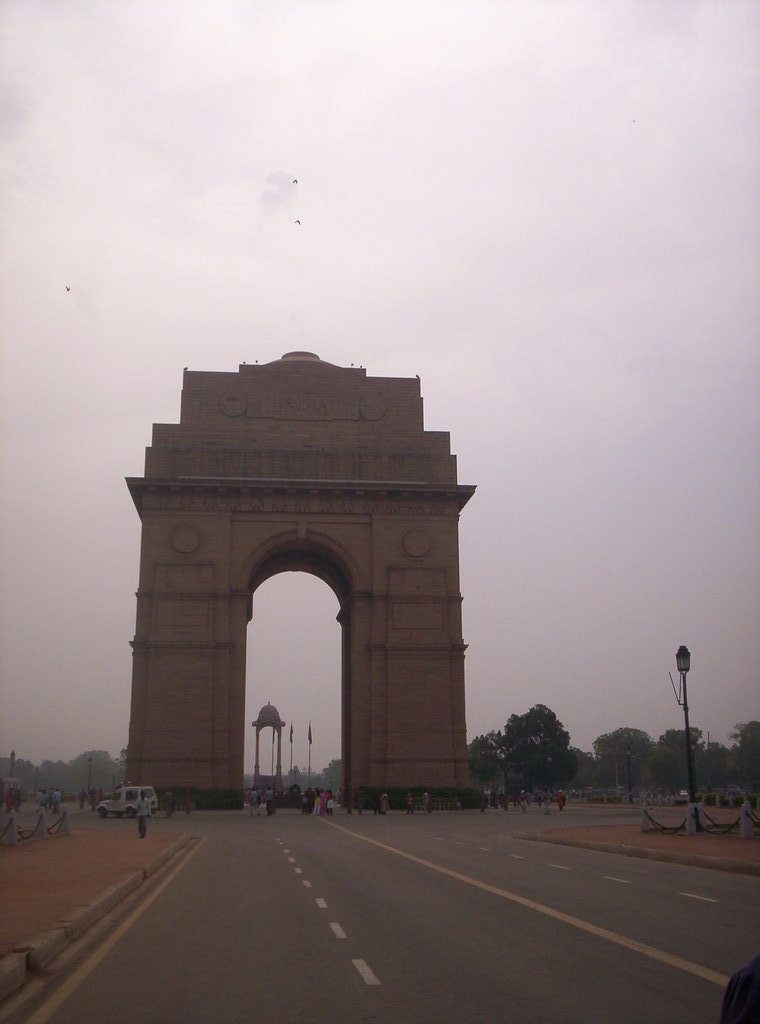
Under the India Gate in New Delhi is also a memorial for Mahatma Gandhi displaying the words ‘Hey Ram’, the last words from his lips.
In January 1948, India was four months into independence but was facing the bitter effects of partition, betrayal and communalism. In such conditions, Gandhiji visited the house of industrialist Ghanshyam Das Birla in New Delhi. On his way to his daily prayer, he was shot dead. His last words were “Hey Ram”. Those words have been immortalised on a memorial right under India’s most important monument for martyrs, the India Gate.
Conclusion
Being to the same places that Mahatma Gandhi had been to is an eye-opening experience. We are so lucky to have travelled and watched India from some of the same places that the Mahatma has. It is a pleasure to be at places that are monumental in his life. If you are unable to plan a trip like India 360 for an entire year, then the Mahatma Gandhi trail is something that you can definitely plan and execute in a matter of 2 weeks.
Further reading
- Website: Gandhi Yatra by MKGandhi.org
- Book: Anaksakti Yoga (Gujarati | Hindi)

